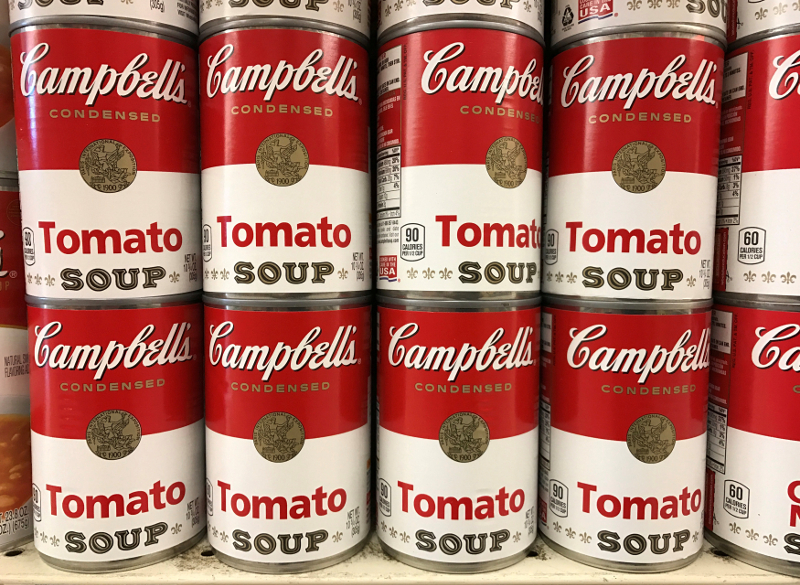NEW YORK, Aug 31 — Campbell Soup Co shares plummeted after the packaged-food company posted disappointing earnings and delivered a weaker-than-expected forecast, bringing more evidence that an industrywide slump is here to stay.
The tepid outlook follows another disappointment for shareholders yesterday, when Warren Buffett threw cold water on the idea that Kraft Heinz Co would buy a company like Mondelez International Inc. Investors interpreted the remarks as a bearish signal for industry consolidation in general, meaning it’s less likely that a takeover of Campbell will provide a payday for them.
As the chances of a merger drop, Campbell’s results are under more scrutiny — and they weren’t strong last quarter. Adjusted earnings amounted to 52 cents, missing the 55-cent projection of analysts. Sales dropped to US$1.66 billion (RM7.09 billion, compared with an estimate of US$1.69 billion.
“The bulk of their business doesn’t show any signs of turning around, and they haven’t had any blockbuster new products,” said Michael Halen, an analyst at Bloomberg Intelligence. “It’s brutal.”
The Camden, New Jersey-based company expects profit in the coming year to top out at US$3.11 a share, excluding some items. That was short of the US$3.20 predicted on average by analysts. Campbell sees revenue ranging from flat to down as much as 2 per cent.
The report sent Campbell down as much as 6.5 per cent to US$46.99, marking the biggest intraday decline since February. The shares had already slipped 17 per cent in 2017 through yesterday’s close, and they’re now trading at their lowest level in two years.
Over the past three years, the 10 largest packaged-food companies have seen about US$16 billion in revenue evaporate as consumers change how they eat and shop. Shoppers are seeking out more natural and organic food, shifting away from the staples that have dominated supermarket shelves for decades.
Whole Foods deal
Amazon.com Inc’s deal to buy Whole Foods also has fuelled pessimism about packaged-food giants, with analysts predicting that the e-commerce titan will favour private-label products and squeeze the profit margins of its suppliers. In June, when that deal was announced, the 10 largest US food companies lost almost US$8 billion in market value combined.
In a bid to add more natural products, Campbell agreed to buy Pacific Foods of Oregon, a maker of organic soup and broth, for US$700 million in June. Campbell also acquired Bolthouse — a producer of carrots, juices and salad dressings — for US$1.55 billion in 2012. That business, now part of the Campbell Fresh unit, has struggled with poor harvests and a drink recall.
Last September, Chief Executive Officer Denise Morrison said Campbell had restructured the fresh-food unit and removed several senior Bolthouse managers in a bid to turn the business around. Bolthouse’s issues were “unacceptable,” she said. — Bloomberg






















